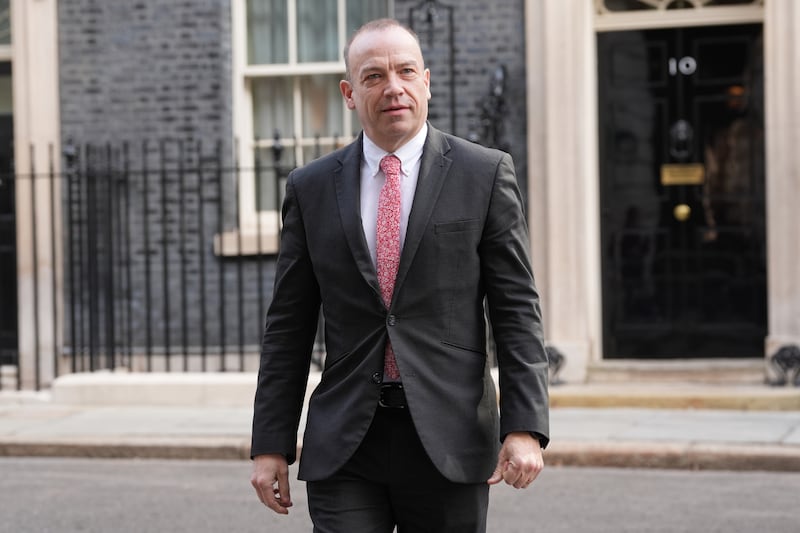Secretary of State Chris Heaton Harris has faced fresh claims that he is delaying an inquest into the loyalist murder of a Catholic man almost 30 years ago.
Eugene Thompson was speaking as the inquest into the murder of his brother Paul ‘Topper’ Thompson continues to stall.
The 25-year-old was gunned down after UDA members cut a hole in a Belfast peace line fence close to a British army base to enter a nationalist area.
Hours earlier, a neighbour reported a hole in the fence at Springfield Park in west Belfast to the RUC and Northern Ireland Office but no action was taken.

Mr Heaton Harris and PSNI Chief Constable Jon Boutcher took legal action last month to stop a coroner producing a gist, or summary, of sensitive information in the case.
Lawyers had claimed any summary of information breached the British government’s Neither Confirm Nor Deny (NCND) policy.
A High Court Court judge later threw out the application and in a statement Mr Boutcher said he “accepts the judgment” and welcomed “the clarity that it provides”.
However, the NIO has persisted with legal action, which continues to delay the inquest and a preliminary hearing was adjourned on Monday as the coroner awaits a fresh ruling from the High Court.
Mr Thompson’s brother Eugene hit out at Mr Heaton-Harris saying the secretary of state “is acting as if everyone here is rogue” because he isn’t permitted to “override the institutions of policing, criminal justice, and the rule of law when he can’t get his way”.
In relation to NCND he said Mr Heaton-Harris has “centred in” his brother’s case and that of LVF murder victims Sean Brown and Fearghal McCusker as he accused the Northern Ireland secretary of holding up his brother’s inquest.
“Justice delayed is justice denied and from where I stand the secretary of state, Chris Heaton-Harris, is most certainly delaying the inquest into Paul’s murder,” he said.
A spokesman for the British government however said it is “fully committed to transparency and openness on matters relating to Northern Ireland’s past”.
“The government has a legal and a moral duty to protect individuals and capabilities, and that is why we maintain a longstanding policy of neither confirming nor denying (NCND) allegations relating to national security,” he said.
“Neither confirm nor deny policy can only be effective when applied consistently, in order to mitigate risks to national security.”









